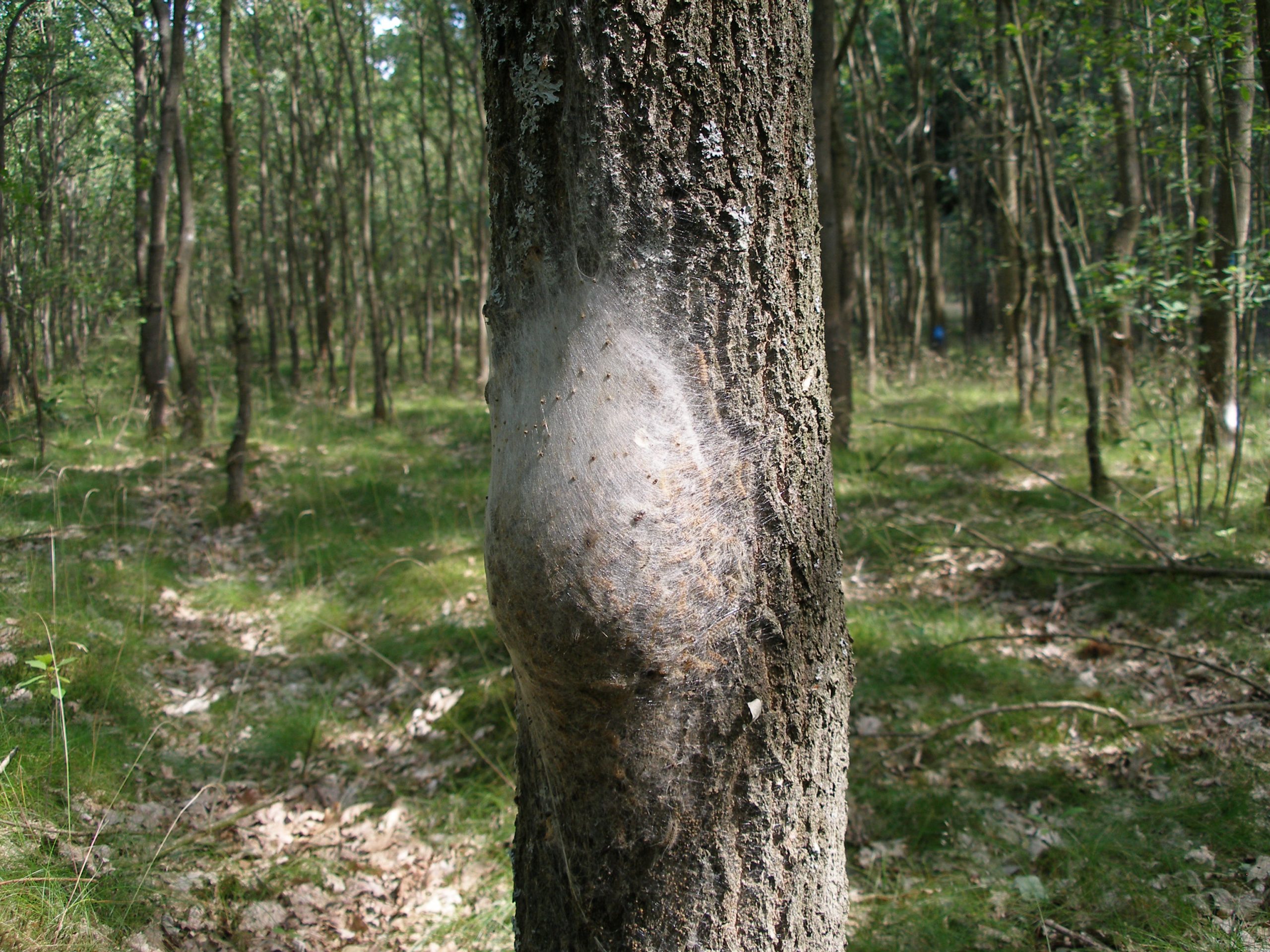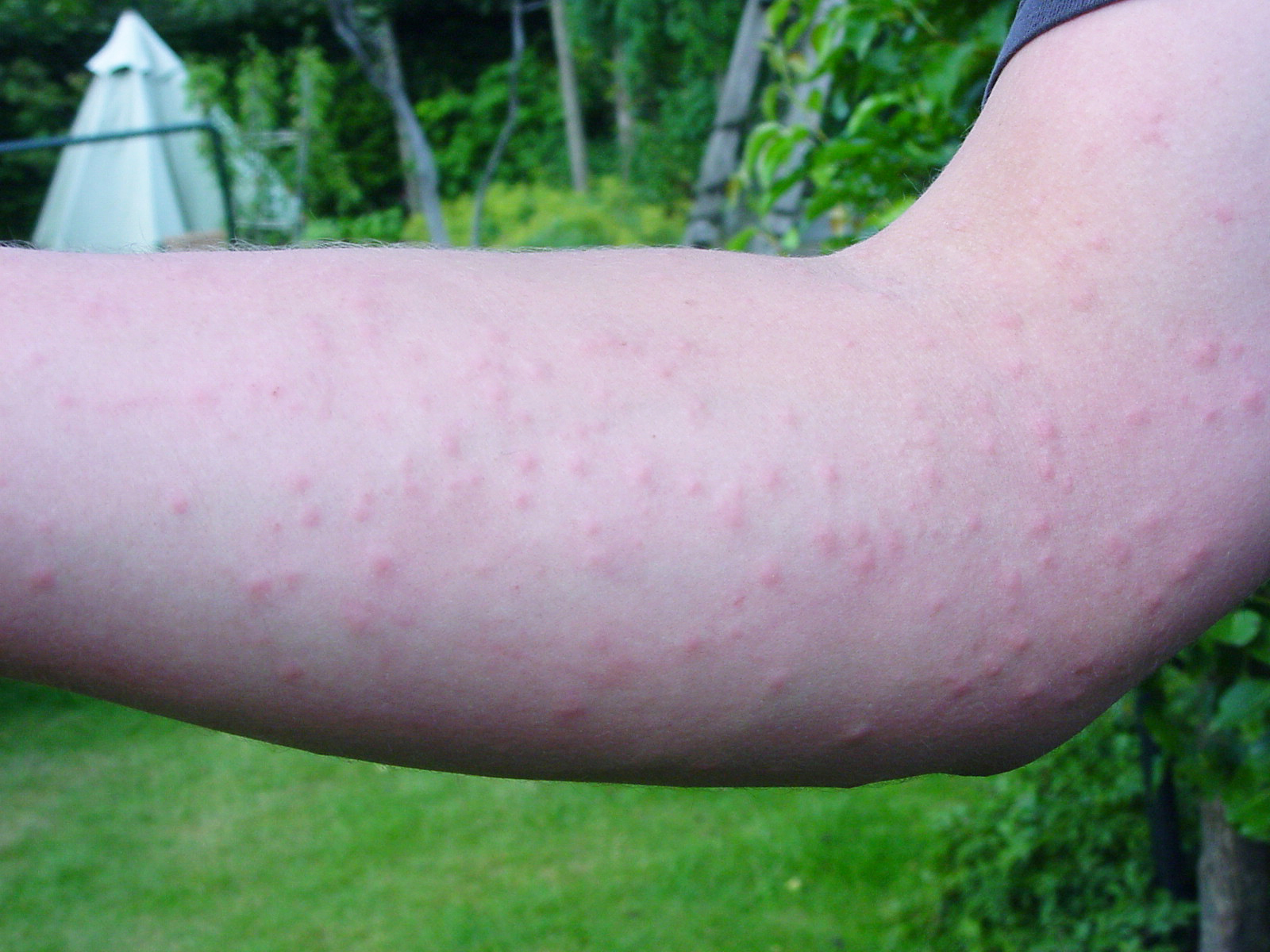Summary
Summary
This project explores novel approaches to detecting tree pests. Using the case of oak processionary moth (OPM), it aims to assess the potential for medical, health and other professionals to form part of an ‘early warning’ system to detect new infestations.

Oak processionary moth nest on oak tree

Skin irritation caused by contact with OPM (Picture: Henry Kuppen)
Research objectives
This project will:
- determine whether human and animal health professionals such as GPs, vets, pharmacists and park officials (e.g. Richmond Park) are recording health conditions, resulting from interactions with the oak processionary moth, that can act as early indicators of potential new outbreaks of OPM; and
- evaluate the potential of social media to contribute to an early warning system of localised health impacts caused by OPM.
Results so far
This project is ongoing, but early results suggest that medical professionals such as general practitioners and vets currently lack much knowledge of OPM and are not receiving or reporting human and animal health incidences.
Pharmacists appear to be more aware, and are more likely the first port of call for those individuals who have health symptoms associated with tree pests.
Social media (e.g. Twitter) does not appear to be a feasible route to early detection. The few cases of keywords (e.g., itching, rash) being used were not linked to areas where OPM nests are known. However, it may be that there were no negative impacts caused by OPM in the area under study.
Funders and partners
Funder: Defra
Partners:
- Fera
- University of Bath
- Centre for Ecology and Hydrology, Wallingford
Status
2012-2014
